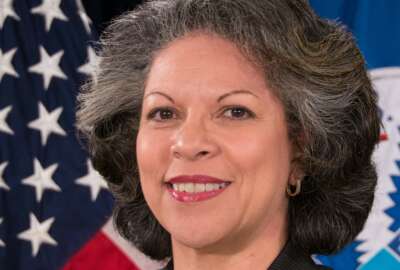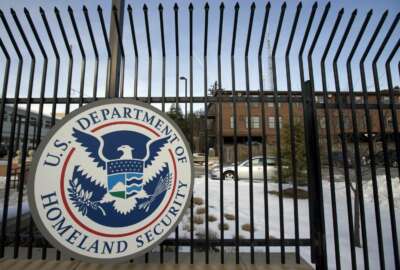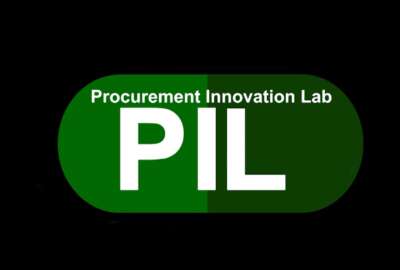When it comes to federal procurement expertise, she’s the go-to person
Few people have more experience in the intricacies of federal procurement than Soraya Correa. Now she's been inducted as a fellow into the National Academy of...
Best listening experience is on Chrome, Firefox or Safari. Subscribe to Federal Drive’s daily audio interviews on Apple Podcasts or PodcastOne.
Few people have more experience in the intricacies of federal procurement than Soraya Correa. She’s led procurement operations at several Homeland Security component agencies and of headquarters, and she guided the purchasing staff into the age of the Federal Information Technology Acquisition Reform Act (FITARA). In all, she spent 40 years in federal service at several agencies. Now she’s been inducted as a fellow into the National Academy of Public Administration. Correa joined Federal Drive with Tom Temin for more discussion.
Interview transcript:
Tom Temin: Ms. Correa, always a pleasure to talk with you.
Soraya Correa: It’s a pleasure to be here with you, thank you.
Tom Temin: And we’re not going to talk about the intricacies of procurement. But I think I know the answer to this first question, but would you tell a son or daughter or grandchild to hey, go into federal procurement for a career?
Soraya Correa: I certainly would. I think procurement is an awesome career, because it’s not just an opportunity to manage the purchasing functions of the federal government and engage in those purchasing functions. But you learn so much about the various programs, the various activities within the federal agencies, and how we serve our customer, our ultimate customer, the taxpayer.
Tom Temin: And, I’m going to make an analogy, having been here 15 years and interviewed about 8,000 people, I get asked, don’t you ever get tired of it? But the fact is, each interview and each individual, even each individual, that comes back several times, it’s a new situation. I imagine that’s how it is with every buy that the government does?
Soraya Correa: That’s exactly right. No two buys are exactly the same, the issues – while they may have similarities, you may have similarities and what you’re doing and how you’re doing it, the issues and the challenges are very different. And of course, the folks you engage with, it’s a great diverse group of people, you learn so much about industry, academia, and other federal agencies, because a lot of our agencies actually do work together and share information and projects and products.
Tom Temin: So you would say then, that the continuous learning and the puzzle solving aspect of it is what sustained you?
Soraya Correa: It did. And it’s all in what you want to do, right? I was all about growth and continuous development and understanding. I moved around, I worked with various agencies. You know, I started out with General Services Administration, Public Building Service, went over the Navy ended up going back to GSA, what is Federal Acquisition Service, went to NASA, and of course, ultimately ended up at DHS. And then even within DHS, I moved around, because I always tell folks, one of the things about a career in government, you can do a lot of different things and a lot of different agencies and work in a lot of different positions, and just develop and grow as much as you want to.
Tom Temin: And what are the most common misconceptions people have about federal procurement? I mean, we’ve heard even vendors in it sometimes have misconceptions.
Soraya Correa: So I think some of the largest misconceptions is that compliance stalls you, it stops you from getting the job done. I don’t agree with that. I think that’s all about creativity and innovation. That the process is slow – it’s not that the process is slow, it’s that the process is lengthy, there are a lot of steps that you have to go through. And sometimes the process is slowed, not because the process in and of itself, is slow. It’s because people stop it, right? People get stuck in the churning, if you will, of trying to make decisions. You got to make decisions move forward, and sometimes you’ve gotta make good ones, and sometimes not so good ones, and you have to go back and fix them. And that’s okay. And then of course, sometimes companies don’t like the equitable process of procurement, if you know what I mean: The competition, the fact that you do have to include or you have to consider small business and those things, and people don’t understand all those things. And it’s that balance of compliance, but also delivering on that mission, because ultimately, what procurement is about is about delivering on the mission of the agency that you’re serving.
Tom Temin: And maybe discuss the discretion that you are able to exercise throughout a career. I mean, you innovated several things like reverse industry days and procurement innovation laboratory types of things. Those were all totally within the FAR and within the general law, but yet pretty wide range of trying things.
Soraya Correa: That’s exactly it. The Federal Acquisition Regulations doesn’t say you have to do it this way. It’s not a cookbook. It’s not it really isn’t. What the Federal Acquisition Regulations tells you is what the intented spirit of the law is. And what are the things that you can’t do. It is very definitive about certain things. But otherwise, it’s wide open. So things like how we engage with industry, how we talk with the industry, what we talk to them about – pretty open field. It’s about ensuring that we comply with things like not giving unfair competitive advantage to a particular vendor, making sure that we’re sharing information in a proper manner that provides opportunity for all that are involved in the process. And most importantly, it’s about ensuring the integrity of the process, making sure that you’re doing the right things for the right reason, and not lining your pockets or doing something silly like that.
Tom Temin: We’re speaking with Soraya Correa, recently retired as the Homeland Security Department’s chief procurement officer after 40 years of federal service. And let’s talk about NAPA, you are a National Academy of Public Administration fellow now. You must have a good idea of what you want to concentrate on there. Any projects in particular?
Soraya Correa: So anything that advances the cause of government, anything that makes sure that we’re providing the folks that are in government the opportunity to improve their business processes to transform business processes that enhance their capabilities and provide better support, not only to the customers that they serve internally within the federal space, but also externally to the customer. I care about a lot of things, obviously, acquisition, I’m very passionate about the acquisition process procurement, and the acquisition workforce. I care a lot about how we engage, enable and empower our workforce to get the job done. So I’m looking forward to projects in that vein, and certainly I love technology, and how we apply technology to a lot of our business processes. So I’m looking forward to engaging in contexts of that nature.
Tom Temin: Yeah, it seems like there’s a lot of headroom yet for the application of artificial intelligence, even RPA in these types of processes, so that people can do more thinking, and less of that handoff and paperwork and nondiscretionary types of activities.
Soraya Correa: That’s correct. We think that there’s a vast array of things that we can employ artificial intelligence and RPA. But we also have to do that thoughtfully, right, because we still have to protect the data, the integrity of the data, and make sure that we’re using that data properly. And similarly, with RPA, we want to make sure that while we use it to take care of those tedious tasks, those tasks that really don’t need that human involvement, that we don’t forget that that human thinking is also important.
Tom Temin: And something that occurred towards the end of your tenure in government. And it’s kind of a widespread thing. It’s not new, but it’s like someone planted a bulb 50 years ago, and now all of a sudden, there’s all these tulips, and that is other transaction authorities. Widespread phenom. It’s a growing one, so far, Congress hasn’t gotten up, its ire over the use of OTAs. Your thoughts on where that’s all heading?
Soraya Correa: So I think OTAs are here to stay, people have figured it out. I think what happened with OTAs, it’s been out of DoD for quite some time. It came into the civilian space finally, right? And OTAs there is concerned because it is non-FAR-based transactions. And so there is an opportunity there for people to sometimes abuse them. But I think when you set up a proper structure as we did at DHS, and you have good oversight and controls put into the process, but still leave the flexibility of what that tool enables you to do, just put some parameters around it and make sure you’re checking it right checking yourself, make sure you properly train your people, I think it’s a great tool. And I think it’s the way we’re gonna unleash innovation across the government. We talk a lot about technology, innovation, and what we can do and all that good stuff. Well, you know what, you can’t do it if it’s going to take you six months to a year to award a contract every time. Startups aren’t going to wait that long to innovate. The real innovators aren’t going to wait that long.
Tom Temin: Many years ago, I covered the industrial purchasing function for an industrial magazine. And I remember a man that was the steel buyer, he bought all of the cold rolled steel for a school bus manufacturer, a big one – Bluebird body company, I think it was called. You still see Bluebird brand school buses. And he was really enthusiastic about it, because I think he thought that he wasn’t just buying steel. But he was a major steel buyer in the southeast of the United States, producing a really important commodity, which is big yellow school buses on which the nation in some sense rests. So he had a sense of mission. And I guess it’s fair to say that that is what is also sustaining to people in federal procurement is NASA, DHS, you name it. The mission is compelling.
Soraya Correa: The mission is compelling. In fact, the folks that worked for me could tell you that the word mission came out of my mouth every single day. There at DHS, what an enormous mission, and the multitude of missions that we serve within the various components and how we come together to protect the homeland, whether you were at NASA, GSA, Social Security. I used to say this all the time when I spoke to groups and people and even when I speak to industry: It is all about the mission. Ultimately, that is what we’re here to do. Certainly we need to comply, we need to make sure that we follow all the rules of engagement. And that’s the delicate balance that we strike. When you work in organizations like the CFO, the chief procurement officer, the chief information officer, we have to balance that. But we can’t lose sight of the mission and ultimately the customer that we serve.
Tom Temin: And finally, what is your secret to sustaining enthusiasm that you show obviously demonstrate?
Soraya Correa: I’m an All American Girl, I love my government. I love my country. I have always been passionate about my profession. I think it’s a great profession to be in. I love the people that are in it. And I love the opportunity to make change. I mean, that’s probably what drives me is that I never settled for status quo. I always came in with that passion and commitment to make it better, to engage with the folks and figure out how I can make the life of the procurement professional better and ultimately, my permanent managers as well.
Tom Temin: Soraya Correa recently retired as the Homeland Security Department’s chief procurement officer after 40 years of federal service, and she’s a recent inductee into the National Academy of Public Service. Thanks so much for joining me.
Soraya Correa: Thank you so much you take care of yourself and look forward to talking to you again soon.
Copyright © 2025 Federal News Network. All rights reserved. This website is not intended for users located within the European Economic Area.
Tom Temin is host of the Federal Drive and has been providing insight on federal technology and management issues for more than 30 years.
Follow @tteminWFED






